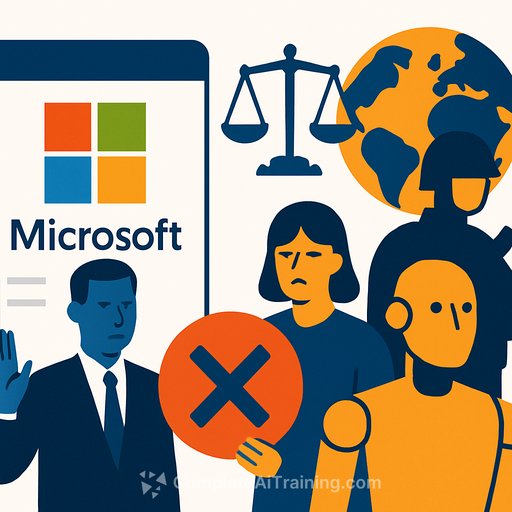Microsoft's Human Rights Due Diligence Risks and Shareholder Activism in the Age of AI and Conflict
Microsoft stands at a critical intersection of technology leadership and ethical scrutiny. Its dominance in AI and cloud computing powers essential enterprise operations and innovative generative models. Yet, the company faces increasing pressure over its involvement in geopolitical conflicts, particularly regarding its provision of Azure and AI tools to the Israeli military amid the Gaza conflict.
This involvement has triggered significant shareholder activism, legal uncertainty, and reputational challenges. The issue extends beyond ethics—it poses tangible financial risks.
Market Reaction and Shareholder Concerns
Microsoft's stock performance remains strong overall but has shown sensitivity to environmental, social, and governance (ESG) concerns. In Q1 2025, shares dropped 5% following media reports linking Azure services to potential war crimes in Gaza. Although there was a partial recovery, the incident raised alarms among institutional investors who are now demanding clearer governance on human rights issues.
Employee walkouts have added to the pressure, signaling internal unrest. The core message is clear: shareholder trust is eroding, and trust is essential for sustaining long-term value.
The Human Rights Due Diligence Gap
Microsoft’s 2025 human rights due diligence (HRDD) framework includes Human Rights Impact Assessments (HRIAs), stakeholder consultations, and transparency reports. However, there is a critical limitation: the company cannot monitor how customers use its software once deployed on their own infrastructure.
This limitation creates significant risks. For example, when the Israeli military uses Azure to analyze satellite imagery or manage logistics, Microsoft cannot confirm whether these tools are applied in ways that might harm civilians.
Shareholder Activism Highlights Accountability Demands
A shareholder resolution filed by over 60 investors, representing $80 million in Microsoft stock, calls for a public report detailing how Microsoft addresses the misuse of its technologies in conflict zones. Though nonbinding, this resolution signals that investors are placing ethics and accountability on par with financial performance.
This development underscores a growing expectation for corporations to demonstrate clear oversight of their products’ impact in sensitive geopolitical contexts.
Legal professionals and compliance officers should monitor these developments closely, as they signal evolving standards for corporate responsibility in technology deployment.
For those interested in expanding their knowledge of AI applications and governance, relevant courses are available at Complete AI Training.
Your membership also unlocks:





